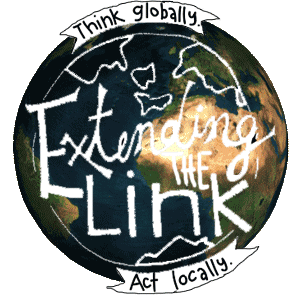Familiar and Foreign
“As a politician, I need to know why something happened so I can tackle it.”
– Berlin City Council member Orkan Oezdemir
“The recent increase in refugees and migrants did not change Germany, but, it changed the political debates of ‘what is foreign?’”
– Madame State Secretary Bettina Martin (Mecklenburg Vorpommern)
As a Political Science major, it is not hard to be fascinated by governmental procedures and structures—even if that fascination is also mixed with disdain. I especially take interest in comparative international politics, which attempts to explain the domestic origins of foreign policy and governmental structures. It was no surprise I was pretty siked to have some governmental appointments.
While still in Berlin, we met with Berlin city council member, Orkan Oezdemir and Secretary of State for the State of Mecklenburg Vorpommern, located in the northeastern part of Germany that borders the Baltic Sea.
They had very different roles within politics, but both belonged to the party of the SPD. This party is made up mostly of Social Democrats. It wouldn’t be hard to guess, but this party generally supports the acceptance of refugee resettlement in Germany. Side note: In 2015 alone, Germany opened its borders to a million refugees and migrants which has (similarly to the U.S.) set off complex and controversial debates across party aisles and ideologies.
These conversations centered around the debates that have since exploded the political sphere and hinted to the recent rise in support for right-wing candidates. They talked about myths that swallow the resettlement process, provided some challenging viewpoints to our team, and offered some testimony relating to our topic: conflict in identity. One of the statements that stuck out to me was Mr. Oezdemir relaying that he “always feels much more German when [he] is outside Germany.” This is so peculiar because I feel the same way about being “American.” This relationship between foreign and familiar is not necessarily dependent on geographical location, but it can play a big role due to the dissonances of cultural and spiritual separation.
Through our interviews, I realized the importance of seeking the other side in any debate. Because of this, both politicians stressed participation as a critical component of complex integration debates. I always think politicians like to make it sound very easy, but in today’s day, it can be hard—REALLY hard. However, I want to ask you a question that Mr. Oezdemir and Mrs. Martin asked me, “What are you really afraid of?”
Days like the past few remind me of my duty as an individual to engage and invest in those around me. Feeling a sense of security requires an indirect cost to my way of living. I seek to do this as we explore parliamentary buildings, Arab-inspired Restaurants, Sachsenhausen Concentration Camp (located in Oranienburg—north of Berlin), and even on public transportation. So, how are you civilly participating right now?
-Mackenzie Kuhl, 2019 Co-Director
